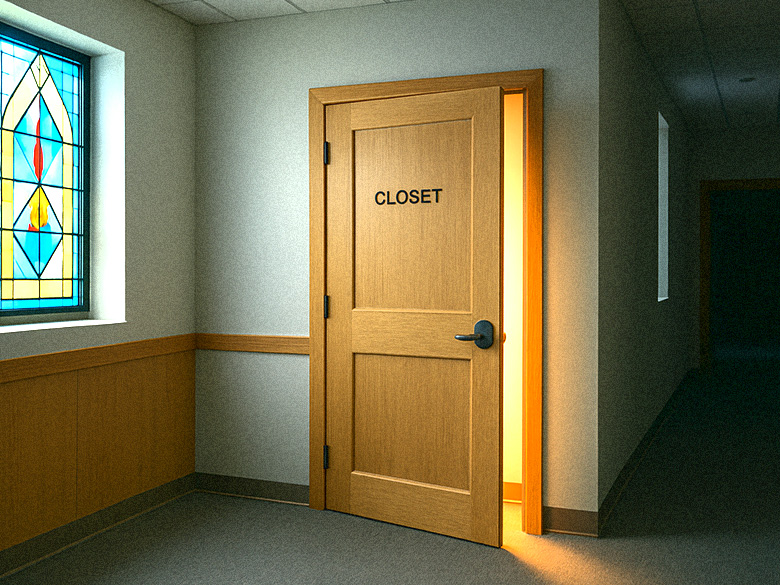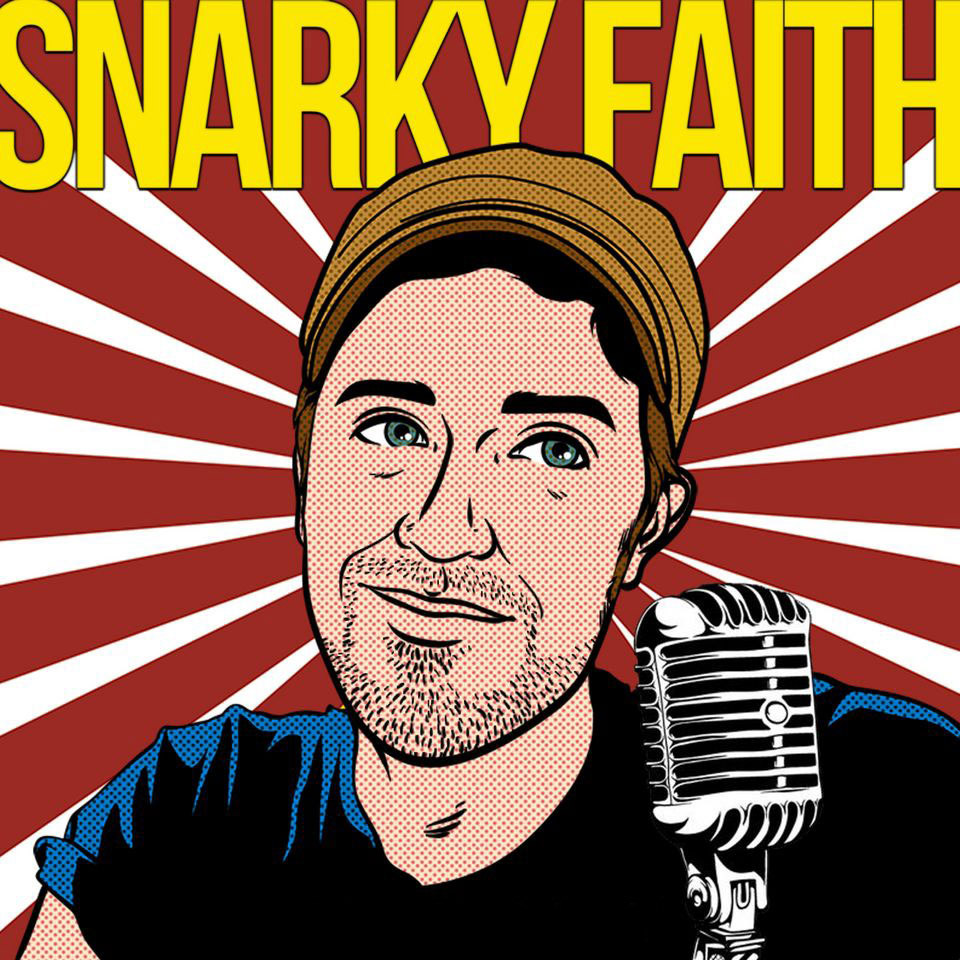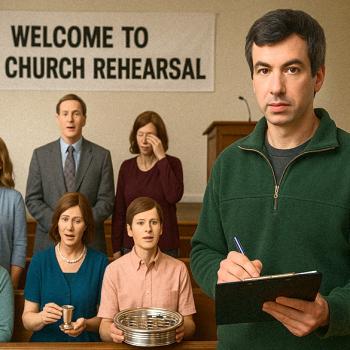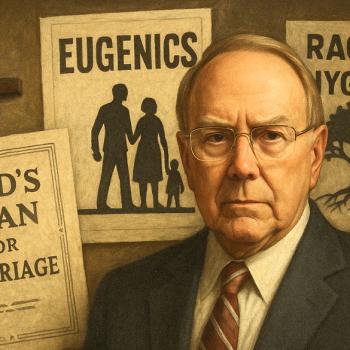
Michael Tait is sorry.
Or at least, he’s sorry enough to make Evangelicalism feel better about itself.
In his statement following allegations of sexual assault and decades of substance abuse, the former DC Talk and Newsboys frontman offered up the classic Christian mea culpa: tears, Psalm 51, vague accountability, and the promise of ongoing healing “away from the stage and the spotlight.” Which, loosely translated, means: I’m going to lay low until you forget this happened and K-LOVE needs a nostalgic comeback tour.
Tait’s statement hits all the familiar beats—shame, redemption, and the promise of a shiny new heart. But behind the script lies a deeper, unspoken truth that Evangelicalism refuses to name: Michael Tait wasn’t just hiding addiction. He was hiding his identity. And in the world of Christian music, being a drug addict is more forgivable than being gay.
Let that sink in.
Addiction, the Acceptable Evangelical Sin
Addiction has a redemption arc. It comes with a rehab facility, a fog machine, and an acoustic version of “God’s Not Dead.” You get to sob on a podcast. You get prayed over at a men’s breakfast. You get a second act.
But being queer in Evangelical spaces? That’s radioactive. There’s no comeback tour for authenticity.
The industry doesn’t just discourage openness—it demands the performance of holiness. And Tait, like many before him, learned that as long as you keep up the act, they’ll look the other way. Until they can’t.
Which is exactly what this is: a crisis not just of personal failure, but of a system that rewards secrecy, protects power, and sacrifices people for the brand.
Better a Monster Than Queer
Let’s be honest. If Tait had come out years ago as a gay man, even one striving to live in harmony with his faith, he would’ve been excommunicated by CCM and booted off Christian radio so fast, his dreadlocks would’ve flown off.
But now? After credible allegations of grooming, abuse, and substance-fueled manipulation of young men? The Church is still… soft-pedaling. Because the story being sold is safer when it’s about sin and recovery—not identity and repression.
Evangelicalism doesn’t know what to do with queerness unless it’s followed by the word “delivered.” But predators? Oh, they know how to handle those. Say sorry, cry a little, quote a Psalm, and we’ll see you at the next men’s conference.
Public Sin Deserves Public Repentance
Here’s the thing: when your platform helped you harm people, you don’t get to repent privately. This wasn’t a private fall. This was a public betrayal—of trust, of victims, and of the faith he claimed to represent.
Christian music thrives on parasocial intimacy. Fans are trained to believe that artists are not just performers but spiritual mentors. So when those same artists use their influence to abuse, “stepping away quietly” isn’t repentance. It’s brand damage control.
Tait’s “repentance” reads less like transformation and more like a strategic pause before the inevitable restoration arc. Because in Evangelicalism, there’s always a comeback waiting if you just say the right kind of sorry.
The Closet Built by Christian Music
This isn’t just about Michael Tait. It’s about the suffocating closet that Evangelicalism builds for anyone who doesn’t fit the mold. It’s a place where authenticity goes to die, and where truth is the one thing you’re never allowed to say out loud.
For years, whispers followed Tait through the industry. People knew. But no one acted—because if the music keeps playing, who cares what happens backstage?
The real tragedy is that the Church would rather harbor predators than welcome the queer kids sitting in its pews. It would rather protect a lie than confront a truth that makes it uncomfortable. And in doing so, it sends a loud, cruel message: We’d rather you destroy yourself than live honestly.
The Lie We Prefer
Michael Tait didn’t fall because he was gay. He fell because he lived a lie for too long, powered by an industry that prefers repentance theater to honest reckoning. This isn’t just about sin. It’s about what we refuse to face.
Because if we ever dared to tell the truth—the whole truth—we’d have to admit that the real sickness isn’t just in the artist.
It’s in the system that made him.
For more Snarky Faith, check out the podcast and more:
- Snarky Faith website
- Snarky Faith on Instagram: @stuartdelony
- Snarky Faith on YouTube: @snarkyfaith
- Snarky Faith on Bluesky: @snarkyfaith.bsky.social
- Snarky Faith Group on Facebook: www.facebook.com/snarkyfaith
- Snarky Faith t-shirts and mugs available here.













